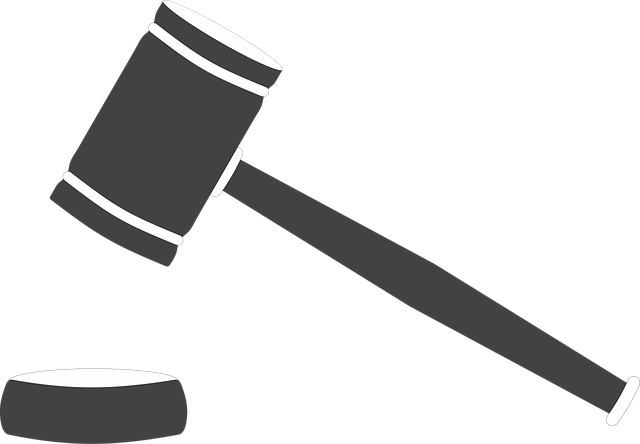Public corruption undermines trust and ethical standards in governments and institutions. Competition law plays a vital role by enforcing transparency and deterring anti-competitive practices, fostering innovation and growth. This legal framework promotes fair market competition, protects citizens through robust legal protections, and strengthens accountability. By curbing corrupt activities, it enables healthy competition, stimulates idea exchange, and enhances public trust, creating an environment conducive to economic growth and innovation.
Public corruption charges cast a shadow over governments and economies worldwide, eroding public trust and hindering development. Understanding these charges is crucial for navigating the intricate relationship between governance and economic growth. This article explores various facets of public corruption, focusing on the unexpected ally: competition law. We delve into how this legal framework can foster transparency, stifle corrupt practices, enhance accountability, and ultimately promote a robust environment conducive to innovation and economic prosperity.
- Understanding Public Corruption Charges
- Competition Law: A Tool for Transparency
- Innovation vs. Corrupt Practices
- Regulatory Framework and Accountability
- The Impact on Economic Growth
Understanding Public Corruption Charges
Public corruption charges are allegations of illicit behavior by individuals or entities within a government or public institution for personal gain. This can include a wide range of activities, from accepting bribes to misuse of public funds and resources. Understanding these charges involves recognizing that they often involve a breach of trust and ethical standards, which can have significant implications for the respective business and corporate and individual clients alike.
The role of competition law in innovation is an interesting aspect to consider when discussing public corruption. While competition laws are primarily designed to promote fair market practices and prevent anti-competitive behaviors, they also play a crucial part in fostering a robust and transparent business environment. By ensuring that businesses operate within ethical boundaries, competition laws help create a level playing field, where corporate clients can thrive based on their merits rather than through illicit means. This, in turn, encourages innovation and growth while minimizing the risk of corruption, which can impede progress and undermine public trust.
Competition Law: A Tool for Transparency
Competition law serves as a powerful tool for promoting transparency and fostering innovation in public sectors plagued by corruption. By implementing strict regulations that prohibit anti-competitive practices, this legal framework ensures fair market competition and discourages collusion among public officials or private entities. This not only deters corrupt behavior but also encourages the exchange of ideas and resources, leading to more efficient and effective services.
The role of competition law in innovation cannot be understated. It drives companies and public bodies to enhance their offerings, improve service quality, and develop new solutions to meet market demands. Furthermore, it empowers citizens by providing a legal framework for addressing corruption, offering them recourse through general criminal defense strategies during all stages of the investigative and enforcement process, including jury trials. This ensures accountability and promotes trust in public institutions.
Innovation vs. Corrupt Practices
In the realm of public corruption charges, the balance between fostering innovation and upholding ethical practices is a delicate one. While competition drives progress in many industries, it can also lead to corrupt behaviors if not regulated properly. The Role of Competition Law in Innovation plays a crucial part in this narrative, as it seeks to harness competitive forces for economic growth while preventing anti-competitive conduct, including corruption.
When well-enforced, competition laws act as a shield against corrupt practices by promoting transparency and accountability within the business sector. This is particularly significant in high-stakes cases involving philanthropic and political communities, where the potential for misuse of power and resources can have far-reaching consequences. A robust general criminal defense strategy must consider these dynamics to ensure that innovation flourishes without succumbing to unethical or corrupt practices.
Regulatory Framework and Accountability
The fight against public corruption is intricately tied to a robust regulatory framework and accountability mechanisms. Competition law plays a pivotal role in fostering innovation and ensuring fair market practices, which are essential for maintaining transparency in public sectors. By promoting healthy competition among entities, these laws deter corrupt activities as they make it harder for individuals or organizations to manipulate markets for personal gain. The ultimate goal is to achieve extraordinary results in terms of efficiency, growth, and consumer protection.
Regulatory bodies and judicial processes, including jury trials, are instrumental in holding public officials and institutions accountable. Effective prosecution strategies that avoid indictment without substantiated evidence can enhance the integrity of the system. This approach ensures that allegations are thoroughly investigated, allowing for the delivery of justice while maintaining the public’s trust in the legal process. Through robust regulation and transparent accountability measures, societies can create an environment conducive to innovation, where citizens and businesses thrive without the shadow of corruption.
The Impact on Economic Growth
Public corruption charges can significantly impact economic growth by undermining the rule of law and market integrity. When public officials abuse their positions for personal gain, it fosters an environment of uncertainty and mistrust. This discourages investment from both domestic and foreign corporate and individual clients, as they seek to avoid high-stakes cases that could involve political exposure or penalization. The lack of transparency and fair competition resulting from corruption hampers the role of competition law in innovation, which is crucial for sustaining economic growth.
Moreover, corruption diverts resources from critical public services and infrastructure projects, impacting overall productivity and development. Philanthropic and political communities often face increased scrutiny and criticism when associated with corrupt practices, further complicating efforts to attract investment and promote economic prosperity. Combating corruption at all levels is therefore essential for fostering a sustainable and robust economy.
Public corruption charges serve as a stark reminder of the detrimental effects of unethical practices on society. However, by leveraging the Role of Competition Law in Innovation, we can foster a more transparent and accountable environment. Competition law acts as a powerful tool to curb corrupt behaviors, promoting fair market competition and encouraging innovation. Balancing regulatory frameworks with economic growth is essential, ensuring that businesses thrive while maintaining integrity across industries. This multifaceted approach is crucial in building a robust economy and strengthening public trust.






